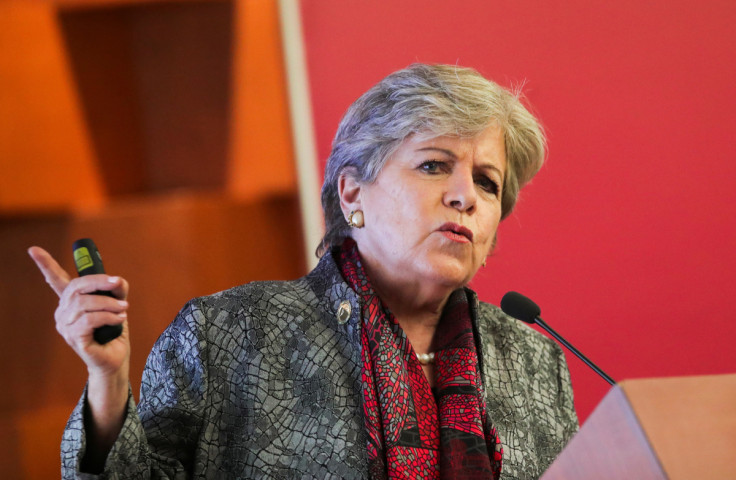
Mexican Foreign Minister Alicia Barcena expressed her support for nationals of her country in Texas, saying the government would help them with legal assistance should the state's law to arrest and deport migrants who are in the country unlawfully, known as SB4, is finally allowed to pass.
"We want Mexican and immigrant communities here to know Mexico will support them whether or not SB4 is enforced," Barcena said in El Paso, the first of a series of stops along the state where she is set to meet with her country's 11 consuls general there.
"We are very concerned; that's why we are here to promote initiatives like 'Know your rights,' legal assistance and 24-hour protection for our nationals."
"SB4 is not in effect, but we need to be prepared as to how we will protect our migrants, our immigrants who live in Texas and in states that are contemplating similar laws. We believe it's a law that discriminates, that is anti-immigrant," she added.
Barcena went on to reiterate that Mexico will not accept migrants who are deported as a result of this law. The government does accept repatriation of Mexicans and the expulsion of other migrants but under mutually agreed conditions, she added.
SB4 is currently in limbo while a legal battle over it continues. A federal appeal court is currently hearing arguments from involved parties, the latest round taking place in early April.
At the center of the conundrum is whether the state can enforce immigration law, something the Justice Department says is not legal. After a majority of judges involved in the case showed skepticism about Texas' arguments, state Solicitor General Aaron Lloyd Nielson said that the state "doesn't deport anybody" under the law.
In turn, he added, authorities take unlawful immigrants to a port of entry, which is controlled by federal authorities. The Greg Abbott administration argues the federal government is not properly enforcing immigration laws and that the state is forced to do it instead.

For now, the panel has continued to block the implementation of the law following a divided, 2-1 ruling from late march. Back then, Judge Priscilla Richman wrote for the majority and said that "for nearly 150 years, the Supreme Court has held that the power to control immigration — the entry, admission, and removal of noncitizens—is exclusively a federal power."
Richman also cited part of a Supreme Court ruling that blocked a similar, restrictive law attempted by Arizona in 2012, popularly known as "show me your papers."
She added that despite the state's criticism of the federal government's "actions and inactions" on immigration, it's up to the administration to "decide whether, and if so, how to pursue noncitizens illegally present in the United States."
SB4 was briefly in effect in March after the Supreme Court lifted a stay allowing it to go ahead while the broader legal battle continued. Liberal justices Ketanji Brown Jackson, Elena Kagan and Sonia Sotomayor had disagreed about letting the law go into effect. However, the appeals court blocked it shortly after and began with the hearings.
© 2024 Latin Times. All rights reserved. Do not reproduce without permission.







